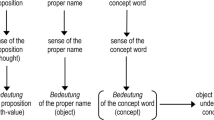Abstract
This book is not about unconventional conflict but about how to model unconventional conflict. In this chapter, we provide an introduction to unconventional conflict and to modeling. Chapters 2 and 3 discuss each subject in more detail. Chapter 4 discusses the DIME/PMESII paradigm, a critical first step in formally describing unconventional conflict. This is followed by a chapter (Chapter 5) on ontologies, which completes the description. Returning to modeling, the next chapter (Chapter 6) discusses verification, validation, and accreditation, which are necessities for modeling anything, but especially important in modeling unconventional conflict. Chapter 7 sketches the process of modeling unconventional conflict that is now possible because of the holistic ontology described in Chapter 5. The final chapter reviews the contents of the previous chapters and recaps the major points that have been discussed.
Access this chapter
Tax calculation will be finalised at checkout
Purchases are for personal use only
Similar content being viewed by others
References
Clausewitz, C. v. (1993). On war. New York: Knopf.
Department of Defense. (2009, September 16). dtic.mil, 3000.05. Retrieved April 24, 2016, from DoD Issuances: http://www.dtic.mil/whs/directives/corres/pdf/300005p.pdf
Department of Defense. (2014, August 28). dtic.mil, 3000.07. Retrieved April 24, 2016, from DoD Issuances: http://www.dtic.mil/whs/directives/corres/pdf/300007p.pdf
Guermantes, L. (2010). Terrorism and counterterrorism M&S. In A. Woodcock, M. Baranick, & A. Sciarretta (Eds.), The human social culture behavior modeling workshop (p. 278). Washington, DC: National Defense University.
Persons, J. (2010). Discussion of HSCB and OR/M&S/Analysis: USA/USMC background study. In A. Woodcock, M. Baranick, & A. Sciarretta (Eds.), The human social culture behavior modeling workshop (pp. 270 & 283–284). Washington, DC: National Defense University.
Unal, M. C. (2016). Counterinsurgency and military strategy: An analysis of the Turkish army’s COIN strategies/doctrines. Military Operations Research, 21(1), 55–88.
Author information
Authors and Affiliations
Rights and permissions
Copyright information
© 2017 Springer International Publishing AG
About this chapter
Cite this chapter
Hartley, D.S. (2017). Introduction. In: Unconventional Conflict. Understanding Complex Systems. Springer, Cham. https://doi.org/10.1007/978-3-319-51935-7_1
Download citation
DOI: https://doi.org/10.1007/978-3-319-51935-7_1
Published:
Publisher Name: Springer, Cham
Print ISBN: 978-3-319-51934-0
Online ISBN: 978-3-319-51935-7
eBook Packages: Political Science and International StudiesPolitical Science and International Studies (R0)



